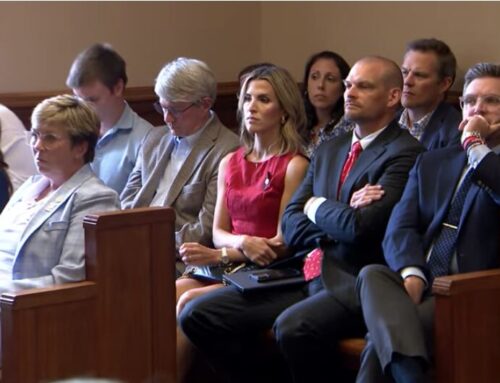Gibson County court clerk refuses to release public documents
The Jackson Sun tried yesterday to get a copy of indictments against 12 current and former employees of the Gibson County Sheriff’s Office. But the Circuit Court Clerk refused to let the newspaper see them or get copies. She said she had not yet logged the indictment into the computer system.
The indictments were the result of an investigation by the Tennessee Bureau of Investigation and the Comptroller’s Office.
Here is an excerpt from the story: Gibson County court clerk refuses to release public documents:
(Janice) Jones refused to make the indictments available for viewing and refused to email, scan or let a reporter take a photo of the documents.
Jones said she would not release the documents because they had not been entered into the computer system. She said they would not be available until Wednesday.
When pressed with questions about why release of public documents was contingent upon them being entered into a computer system, Jones became annoyed and threatened to end a telephone conversation with Steve Coffman, editor of The Jackson Sun. She eventually said she was following the instructions of “my judge.”
Rick Hollow, general counsel for the Tennessee Press Association, said indictments are public documents, and officials cannot legally withhold public documents without a reasonable excuse.
“I don’t really appreciate what they’re talking about there,” Hollow said. “You have an indictment or you don’t. Once it’s been issued by the grand jury it is a document that is public record, unless it was a sealed document.
“There’s no reason for it not to be made public … no justification,” Hollow continued. “If they have a reason for it to be withheld, then they have an obligation to tell us.”
Deborah Fisher, executive director of the Tennessee Coalition for Open Government, said a county official not allowing the viewing of an indictment is “amazing.”
“An indictment is clearly a public record, and it is one from the moment it is created,” Fisher said. “For a court clerk to withhold a public record from a news reporter or any citizen is surprising and disappointing. They should hand it over right away.”
According to Tennessee Code Annotated 10-7-503 (a) (2)(A), “All state, county and municipal records shall, at all times during business hours, which for public hospitals shall be during the business hours of their administrative offices, be open for personal inspection by any citizen of this state, and those in charge of the records shall not refuse such right of inspection to any citizen, unless otherwise provided by state law.”
Experts also said Jones’ excuse about entering the indictments into a computer system was not valid.
“I know of no provision of law that says a record is confidential because it has not yet been entered in a computer,” Frank Gibson, director of public policy of the Tennessee Press Association, said. “The state Office of Open Records Counsel has repeatedly noted that if a document meets the definition of a public record, it becomes public when it is created. The paper copy is a public record unless the county can show a law that says otherwise.”




